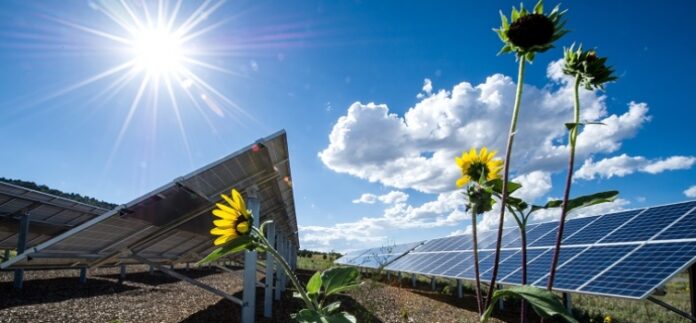The Middle East has been witnessing a growing interest in and efforts toward harnessing renewable energy. Over the past month the region saw some interesting developments in the sector.
Shams Dubai is among the recent notable initiatives. Dubai Electricity and Water Authority (DEWA) launched a scheme to promote rooftop production of solar energy under this initiative.
Households adopting the scheme are allowed to install rooftop solar panels and feed the excess electricity produced to the grid in accordance with certain stipulations.
Meanwhile, the government of Jordan has decided to install photovoltaic systems on 6,000 mosques in that country.
The Jordan Times reported that the project, to include 120 mosques in the initial phase, was likely to begin this year.
Every year Jordan imports about 96 percent of the energy it needs. The country now plans to connect about 1.65 GW of renewable energy projects to the grid by 2020.
Egypt, too, has been investing resources to build its renewable energy portfolio. In January the country announced it was launching the tender process for a 250-megawatt wind energy project.
And earlier this month Gulf-based energy firms Masdar and Acwa Power signed Memoranda of Understanding (MoU) with the Egyptian Electricity Holding Company to develop up to 4 Gigawatts of renewable and natural gas power generation projects in Egypt.
Siemens has also signed an agreement with the Egyptian government to build a 4.4 GW combined-cycle power plant and an additional 2 GW of wind power capacity.
The company also proposes to build a factory in Egypt to manufacture rotor blades for wind turbines.
Lebanon has also taken its first step toward building its solar energy capacity in the past month. The country’s first solar farm will soon be connected to its power grid. Although the development of renewable energy is inadequate on its own to solve electricity shortages, it is seen as a positive, corrective measure.
Beirut River Solar Snake (BRSS) project is another ongoing project with promise for the Middle East. The project covers a 300 metre-stretch of the Beirut River. It is expected to produce 1MW of power to be grid connected by April.
The entire project is aimed at providing a capacity of 10MW, which can power 10,000 homes.
One other development that is of assistance to the UAE as a whole is the proposed development of a wind power atlas. Finnish metrics specialist Vaisala and Masdar Institute have joined hands to develop the wind atlas for UAE.
The database is expected to support investment and infrastructure planning in the region.
Ajith Kumar S
editor@greentechlead.com

